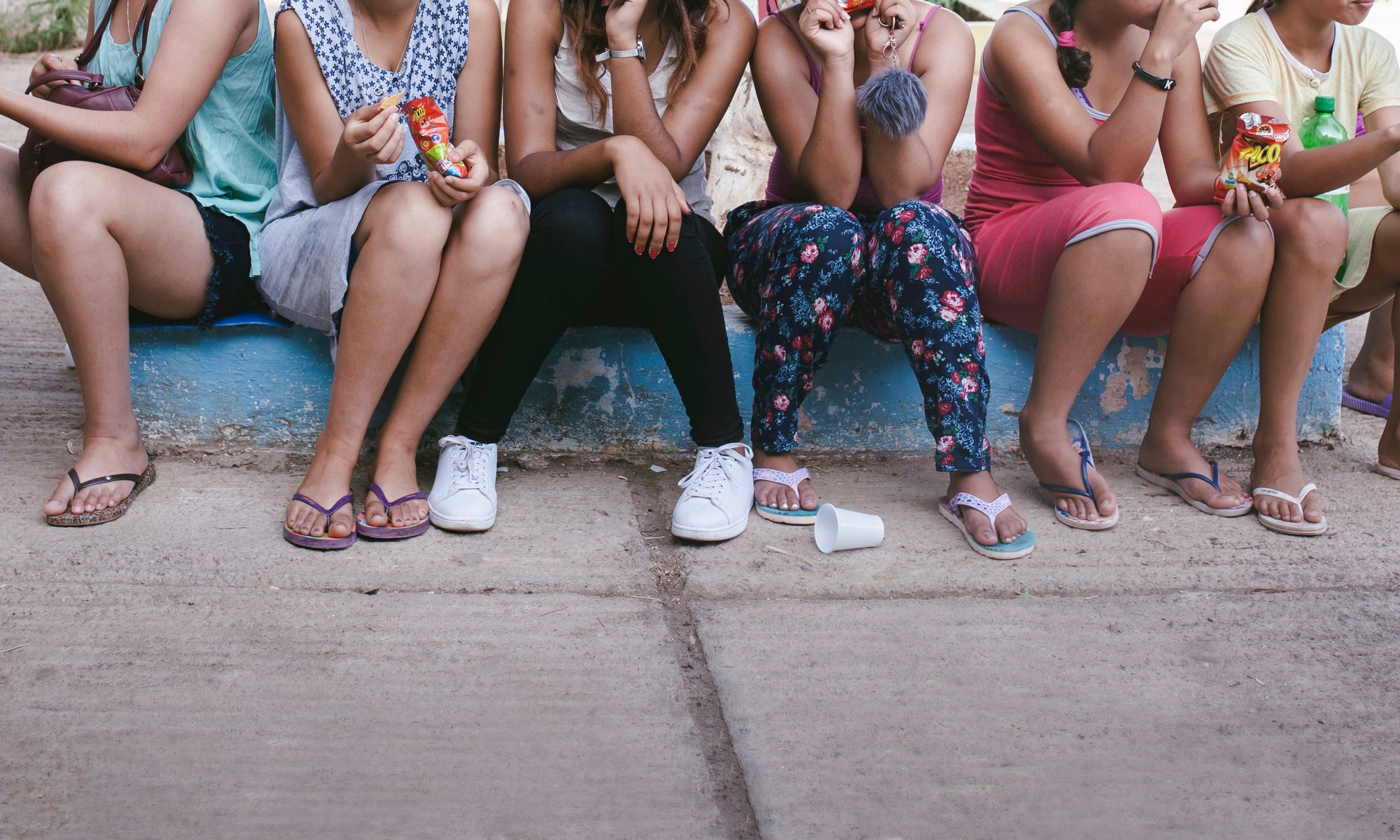Amos and Alice* have lived overseas as single workers for 3 and 9 years respectively. They married in August 2019 and are back in Africa as RI workers. Amos teaches English at a local school and Alice runs an organization that provides alternative career opportunities for women in this country who are at risk of sex-trafficking.
The African country that Amos and Alice work in is strategically located along the transit route from Sub-Saharan Africa to Europe. Along with the transport of consumer goods, food, and other natural resources, this route is also used, sadly, to transport people – mostly women who will be exploited for sex or labor.
Alice came face-to-face with this reality in 2003, when she sat in the living room of an African woman, Rajaa,* who had recently become a believer. A young girl who Alice perceived to be Rajaa’s daughter walked in to serve tea. When Alice made the typical remarks about the daughter’s beauty, Rajaa corrected her, telling Alice that this was not her daughter, but “her girl.” Alice said, “I asked more questions and figured out that she had purchased a twelve-year-old girl from a woman who was living on the street and couldn’t afford to support her daughter.”
While Rajaa did not see any problem with having a young girl work for her until she was old enough to get married (arranged by Rajaa), Alice was shocked. “This changed my entire perspective on what was happening in the world.”
After spending a few years back in the U.S. working with anti-human-trafficking efforts, Alice felt God reminding her of that young girl in Africa, and the many more who needed to experience the hope and love of Jesus. She moved back to Africa to start one of the few resources in the country for vulnerable women. The transition home she opened provides a place to live and learn a trade for orphaned girls who have aged out of government housing and are at high-risk for trafficking.
“Because of the socio-economic state of the country, there are so many people who are desperate to get out of the country,” Alice explained. “There are tons of trafficking rings that manipulate young women into accepting jobs in the Middle East that end up being sex trafficking jobs.”
Along with a poor economy, certain aspects of this country’s culture and tradition have led to the mistreatment of women. While discipling young men who are new believers, Amos has had to emphasize the need for women to be respected and valued. He is teaching them that “you have responsibility for your actions – what you say and how you treat a woman.” Amos says that he has worked with men who treat women like garbage, “but there is hope in the gospel and the love of Jesus.” He has already seen a transformation in the way these men think and act.
As well as creating a safe space for at-risk women and teaching young men about respect, Amos and Alice are bringing God’s redemption and love to women who are currently being trafficked. A group started prayer walking around the places frequented by these women and have slowly been able to have conversations about Jesus. One night, Amos had the opportunity to show a few of these women a film about Mary Magdalene on his cell phone.
“The number one attraction to Jesus for these women, is his love and the compassionate way he talks to sinful people,” Alice said. Many of these women have only known God as impersonal, and are deeply affected by the way Jesus invites us to experience him, taste him, and know him as he knows us. “I have watched those words strip away layers of shame, and release the beauty of experiencing the righteousness of Christ in their heart – knowing they are loved and accepted for who they are because they are his.”
“The reality is that until the narrative that people believe about humanity changes, this won’t end. I can rescue five girls, but there will still be five girls behind them because the demand will still be there.”
This kind of transformation can sometimes take a long time. Alice met Selma* when she was thirteen. Selma’s mother was in prostitution and after fleeing that situation and then living on the street for a few years, Selma lived in government housing for young girls without a home or family. When Alice was introduced to her, Selma drew a cross on the ground and asked Alice if she liked it. Alice nodded her head and said “yes.” Selma responded by spitting on the cross. “Years later, when she aged out of the center and came into the transition home,” Alice said, “she found a card in her wardrobe that had Matthew 28 written on it and tore it to pieces. She wanted nothing to do with Christianity whatsoever.”
A few years after living in the transition home, Amos started teaching Selma English. Early on in the class she had expressed her distaste for Christianity and asked Amos not to use anything about Jesus in their lessons. But one day she asked him what a Christian was. Surprised and excited, Amos answered: “a Christian is a story of love and adoption.” Then he asked, “Do you want to hear the story?” She said yes.
Over the following weeks, they began to read the Bible together and after two months she went to an event for Christian youth. Her heart was softened and her thoughts about God, Christianity, and the Bible were completely changed. “Her new gentleness of spirit gave evidence of her encounter with Jesus and his grace. About a month ago she was baptized,” Alice said.
Jesus makes a difference. He changes our value systems, our demeanor, and our perception of self-worth. Through him, women and men can be set free from shame and blindness into the hope of boundless grace. Amos and Alice know that without Jesus, none of this can change.
Amos has seen how the knowledge of God’s love can “be the driving force of liberating people from feeling worthless, like they have no identity, and it doesn’t matter what happens to them.”
“The reality is that until the narrative that people believe about humanity changes, this won’t end,” Alice said. “I can rescue five girls, but there will still be five girls behind them because the demand will still be there. The gospel transforms the narrative of ‘this world exists for my pleasure…’ to ‘a good God created this world who loves me and has called me to show kindness and mercy and love.’ When we rewrite that narrative on people’s hearts by sharing the gospel, and sharing who Jesus is, then we can end exploitation.”
Let us know Jesus’s borderless love and respect in our own churches, homes, and hearts, and then let us take it to other communities and countries who need Jesus too. Let humility and the Holy Spirit motivate and guide us in this important endeavor.
*Names changed for security


